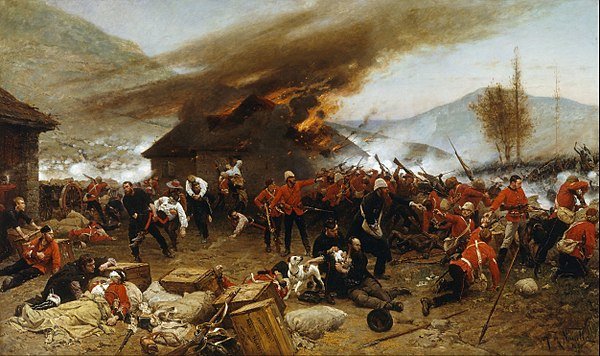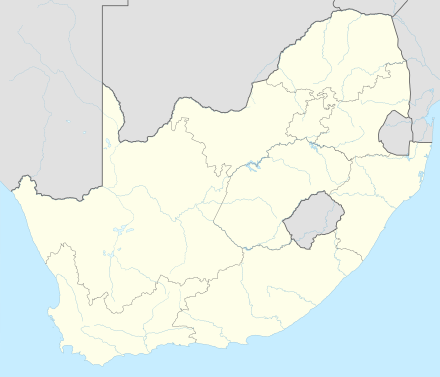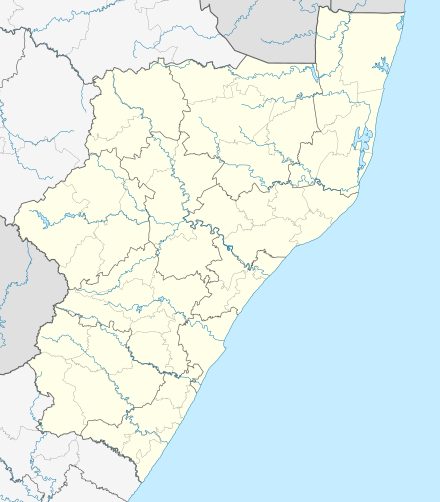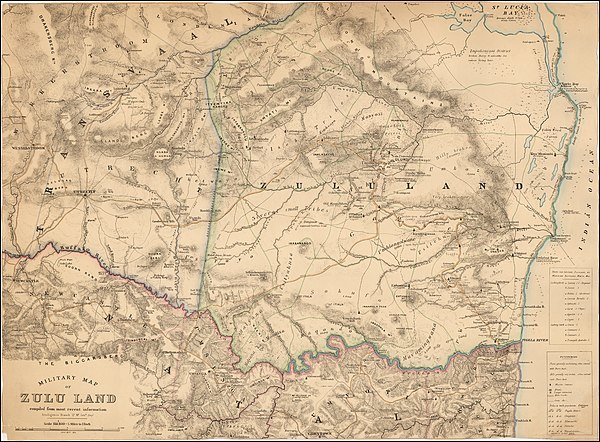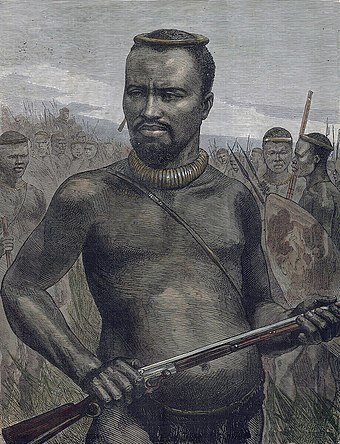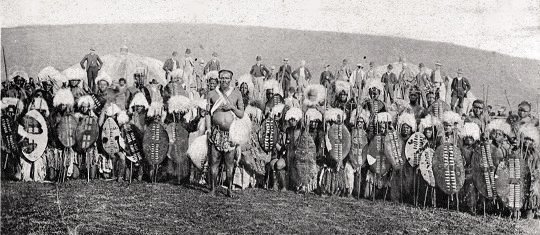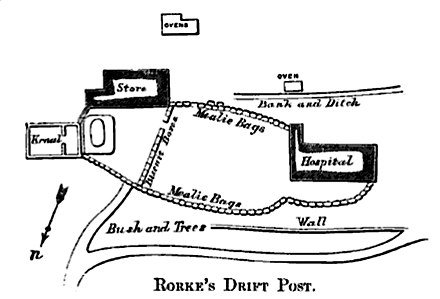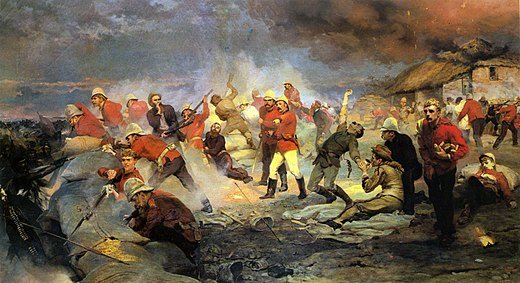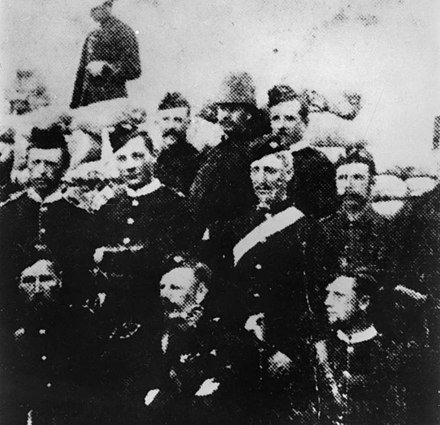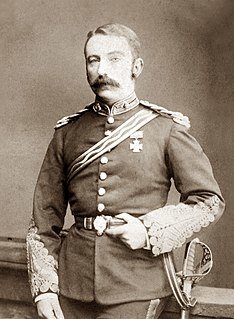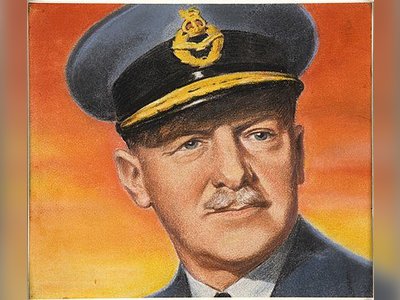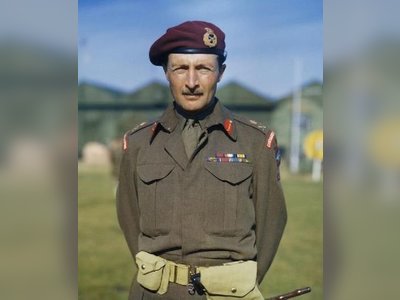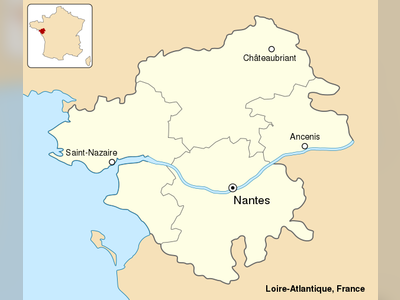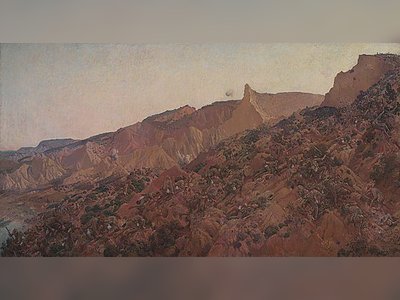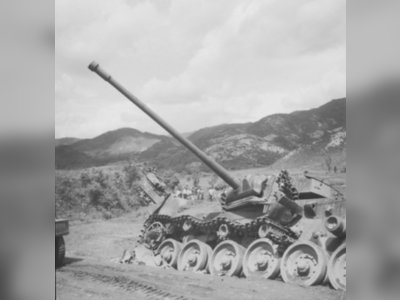British Heritage
Remember, Cherish, Learn.
beta
Battle of Rorke's Drift
Contribution of the Battle of Rorke's Drift to British Heritage.
The Battle of Rorke's Drift, fought during the Anglo-Zulu War in 1879, holds a significant place in British heritage. It was a remarkable display of bravery, tenacity, and military skill exhibited by a small British and colonial force defending the mission station of Rorke's Drift against overwhelming odds. This engagement is remembered as one of the most celebrated acts of heroism in British military history, showcasing the indomitable spirit of the British soldier and the courage of those who stood firm against an enormous Zulu force.
The battle unfolded as a consequence of the British defeat at the Battle of Isandlwana on the same day, January 22, 1879. After a large contingent of Zulu warriors broke off from their main force and diverted to attack Rorke's Drift, just over 150 British and colonial troops found themselves defending the mission station against the onslaught of 3,000 to 4,000 Zulu warriors. The garrison, under the command of Lieutenants John Chard and Gonville Bromhead, faced tremendous challenges throughout the conflict, but through courage, resourcefulness, and tactical acumen, they managed to repel numerous Zulu assaults.
The Battle of Rorke's Drift showcased the determination and resilience of the British soldiers in the face of adversity. Despite being heavily outnumbered, the defenders refused to yield, standing their ground and ultimately prevailing against the Zulu onslaught. Their successful defense of Rorke's Drift demonstrated the unwavering commitment of British forces to protect their positions and fulfill their duties, even in the direst circumstances.
The legacy of the Battle of Rorke's Drift endures through the decades, and it remains an iconic event in British military history. The gallantry displayed by the defenders garnered widespread recognition and admiration, both among the British public and within the military ranks. The eleven Victoria Crosses awarded to the defenders, along with several other decorations and honors, solidified the battle's place in the annals of valor and bravery.
The Battle of Rorke's Drift became a symbol of British heroism and perseverance in the face of overwhelming odds. It demonstrated the importance of disciplined leadership, steadfastness in battle, and the significance of individual acts of bravery that could influence the outcome of a conflict. The remarkable story of Rorke's Drift captured the imagination of the British people and served as a source of inspiration for generations to come.
Furthermore, the battle highlighted the significance of adaptability and resourcefulness in warfare. The defenders' ability to improvise defensive positions using mealie bags and barricades proved crucial in holding off the Zulu attacks. The success at Rorke's Drift also underscored the importance of proper military planning and strategic positioning in the face of a determined adversary.
The Battle of Rorke's Drift was a resounding success for the British forces, despite their numerical disadvantage. The valiant defense of the mission station secured a significant victory and provided a morale boost for the British military during the otherwise challenging Anglo-Zulu War. The triumph at Rorke's Drift showcased the skill and resilience of British soldiers, bolstering national pride and reinforcing the image of the British Empire as a dominant force on the world stage.
The battle's success also had a profound impact on British military tactics and training. It underscored the importance of disciplined marksmanship and the need to fortify defensive positions when faced with a numerically superior enemy. The lessons learned from Rorke's Drift influenced subsequent military strategies and became an integral part of the British military's historical repertoire.
Rorke's Drift, originally known as kwaJimu in the Zulu language, was a mission station located near a drift, or ford, on the Buffalo River, serving as the border between the British colony of Natal and the Zulu Kingdom. The battle occurred on January 22-23, 1879, during the Anglo-Zulu War, which was waged between the British Empire and the Zulu Kingdom.
After the devastating defeat of the British forces at the Battle of Isandlwana, a significant number of Zulu warriors broke off from their main force and attacked Rorke's Drift. The British garrison at the mission station, consisting of just over 150 soldiers, faced a massive onslaught by an estimated 3,000 to 4,000 Zulu warriors.
Led by Lieutenants John Chard and Gonville Bromhead, the defenders utilized their limited resources to construct defensive positions using mealie bags and barricades. Throughout the battle, the Zulu attacks were relentless and fierce, with the defenders engaged in hand-to-hand combat to repel the enemy.
Despite being heavily outnumbered, the British and colonial troops held their ground, refusing to retreat or surrender. Their tenacity and determination ultimately paid off, as the defenders managed to fend off the Zulu assaults and secure a significant victory.
The Battle of Rorke's Drift resulted in the awarding of eleven Victoria Crosses to the defenders, the highest military decoration for valor in the British Empire. This extraordinary display of courage and heroism solidified the battle's place in British military history and contributed to the enduring legacy of Rorke's Drift as a symbol of bravery and fortitude in the face of overwhelming odds.
The battle unfolded as a consequence of the British defeat at the Battle of Isandlwana on the same day, January 22, 1879. After a large contingent of Zulu warriors broke off from their main force and diverted to attack Rorke's Drift, just over 150 British and colonial troops found themselves defending the mission station against the onslaught of 3,000 to 4,000 Zulu warriors. The garrison, under the command of Lieutenants John Chard and Gonville Bromhead, faced tremendous challenges throughout the conflict, but through courage, resourcefulness, and tactical acumen, they managed to repel numerous Zulu assaults.
The Battle of Rorke's Drift showcased the determination and resilience of the British soldiers in the face of adversity. Despite being heavily outnumbered, the defenders refused to yield, standing their ground and ultimately prevailing against the Zulu onslaught. Their successful defense of Rorke's Drift demonstrated the unwavering commitment of British forces to protect their positions and fulfill their duties, even in the direst circumstances.
Legacy of the Battle of Rorke's Drift
The legacy of the Battle of Rorke's Drift endures through the decades, and it remains an iconic event in British military history. The gallantry displayed by the defenders garnered widespread recognition and admiration, both among the British public and within the military ranks. The eleven Victoria Crosses awarded to the defenders, along with several other decorations and honors, solidified the battle's place in the annals of valor and bravery.
The Battle of Rorke's Drift became a symbol of British heroism and perseverance in the face of overwhelming odds. It demonstrated the importance of disciplined leadership, steadfastness in battle, and the significance of individual acts of bravery that could influence the outcome of a conflict. The remarkable story of Rorke's Drift captured the imagination of the British people and served as a source of inspiration for generations to come.
Furthermore, the battle highlighted the significance of adaptability and resourcefulness in warfare. The defenders' ability to improvise defensive positions using mealie bags and barricades proved crucial in holding off the Zulu attacks. The success at Rorke's Drift also underscored the importance of proper military planning and strategic positioning in the face of a determined adversary.
Contribution to British Heritage and Success
The Battle of Rorke's Drift was a resounding success for the British forces, despite their numerical disadvantage. The valiant defense of the mission station secured a significant victory and provided a morale boost for the British military during the otherwise challenging Anglo-Zulu War. The triumph at Rorke's Drift showcased the skill and resilience of British soldiers, bolstering national pride and reinforcing the image of the British Empire as a dominant force on the world stage.
The battle's success also had a profound impact on British military tactics and training. It underscored the importance of disciplined marksmanship and the need to fortify defensive positions when faced with a numerically superior enemy. The lessons learned from Rorke's Drift influenced subsequent military strategies and became an integral part of the British military's historical repertoire.
General Information about the Battle of Rorke's Drift
Rorke's Drift, originally known as kwaJimu in the Zulu language, was a mission station located near a drift, or ford, on the Buffalo River, serving as the border between the British colony of Natal and the Zulu Kingdom. The battle occurred on January 22-23, 1879, during the Anglo-Zulu War, which was waged between the British Empire and the Zulu Kingdom.
After the devastating defeat of the British forces at the Battle of Isandlwana, a significant number of Zulu warriors broke off from their main force and attacked Rorke's Drift. The British garrison at the mission station, consisting of just over 150 soldiers, faced a massive onslaught by an estimated 3,000 to 4,000 Zulu warriors.
Led by Lieutenants John Chard and Gonville Bromhead, the defenders utilized their limited resources to construct defensive positions using mealie bags and barricades. Throughout the battle, the Zulu attacks were relentless and fierce, with the defenders engaged in hand-to-hand combat to repel the enemy.
Despite being heavily outnumbered, the British and colonial troops held their ground, refusing to retreat or surrender. Their tenacity and determination ultimately paid off, as the defenders managed to fend off the Zulu assaults and secure a significant victory.
The Battle of Rorke's Drift resulted in the awarding of eleven Victoria Crosses to the defenders, the highest military decoration for valor in the British Empire. This extraordinary display of courage and heroism solidified the battle's place in British military history and contributed to the enduring legacy of Rorke's Drift as a symbol of bravery and fortitude in the face of overwhelming odds.
- Battle of Rorke's Driften.wikipedia.org
